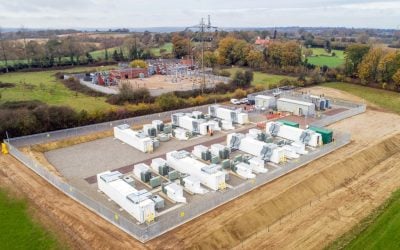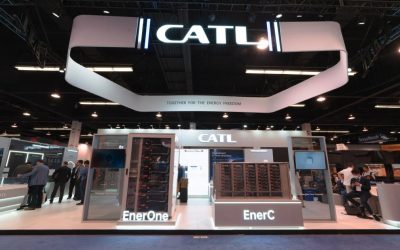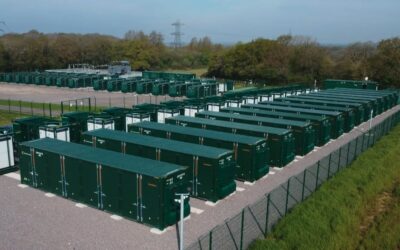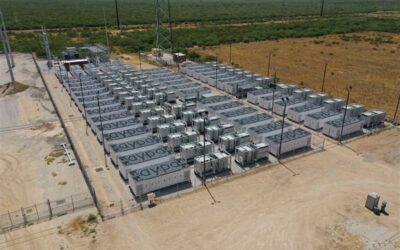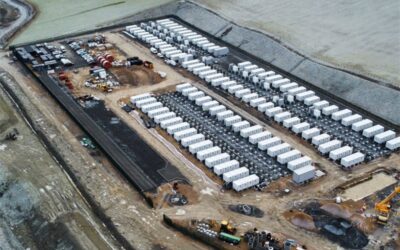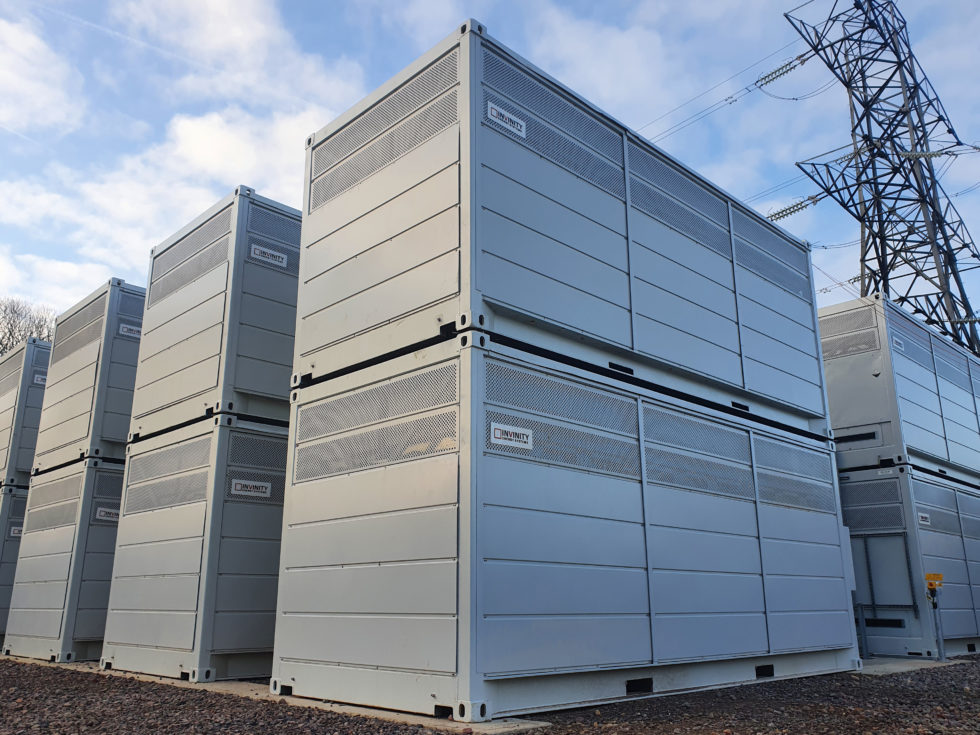
Vanadium redox flow battery (VRFB) company Invinity Energy Systems is raising up to £56 million (US$70 million), in large part to take direct stakes in downstream projects in the UK, as the company’s chief commercial officer explained to Energy-Storage.news.
The London Stock Exchange AIM-listed firm is raising £25 million from the government-owned UK Infrastructure Bank and another £3 million from conglomerate Korea Investment Holdings, under a conditional subscription of new shares totalling £28 million.
Enjoy 12 months of exclusive analysis
- Regular insight and analysis of the industry’s biggest developments
- In-depth interviews with the industry’s leading figures
- Annual digital subscription to the PV Tech Power journal
- Discounts on Solar Media’s portfolio of events, in-person and virtual
Or continue reading this article for free
In addition, it intends to raise a placing with UK institutional investors for a minimum of £22 million via an ‘accelerated book build’ and another £6.6 million via an ‘open offer’, with the three fundraises all-in-all totalling £56.6 million. Company directors have the option to increase the £22 million placing in size.
Invinity’s CCO Matt Harper told Energy-Storage.news that of the total raised about £23 million would go to directly investing in projects in the UK, around £2 million to capital expansion of its manufacturing facilities and the remainder would be for working capital, including upgrading its supply chain.
The fundraise size is significant for the company, which only has a market capitalisation of £44.2 million at the time of writing, with its share price close to an all-time low at 23.19p, down around 70% from two years ago (note that the same can be said about many other listed energy storage technology firms).
Direct investment in UK projects to ‘kickstart’ market
Invinity manufactures and sells vanadium redox flow batteries (VRFB) for the grid-scale and commercial and industrial (C&I) markets, with manufacturing facilities in Canada and Scotland. The long-duration energy storage (LDES) technology can offer durations of up to 24-hours, beyond what lithium-ion typically can do cost-effectively.
However, Invinity and the wider LDES sector have struggled to commercialise their projects at the desired scale with most markets still not offering the energy-intensive revenue opportunities that LDES can best capture.
CEO of UK Infrastructure Bank John Flint alluded to this in a statement in the announcement: “However, the market of investors in more nascent longer-duration technologies like vanadium flow has developed more slowly than for lithium-ion batteries.”
“The customer CFO looks at our technology and says that it makes no more money today than a 1-hour lithium-ion battery,” Harper told Energy-Storage.news.
The new capital will be used to enable Invinity to take minority ownership stakes in UK LDES projects, a departure from its current role as solely the technology and maintenance (O&M) provider.
“What that part of the funding will do is give us a little bit of firepower to accelerate deployment of a small number of very large-scale LDES projects in the UK, that are bigger than anything we’ve ever done,” Harper said.
“The UK LDES Consultation draft rules set a minimum project size of 300MWh, and the biggest we’ve done in the UK is 5MWh. This funding will close the gap of commerciality of those projects.”
Harper also said that having ownership stakes in projects and ‘a seat in the operating room’ will give Invinity the data and experience it needs to help shape the conversation on how to maximise the long-term value of LDES in the energy market.
It aims to deploy about 100MWh of projects this way, mostly with developers that are already active in the UK energy storage market.
It follows a trend of select other LDES companies also moving into owning projects themselves, such as Energy Vault (Premium access).
Manufacturing Mistral to reach profitability
Harper also explained that the key to reaching net positive cash generation or profitability is scaling up the manufacturing of its latest generation VRFB product, Mistral, to get it out into the market.
VRFB is among the more long-standing long-duration energy storage (LDES) technologies, having been invented in the 1980s and its patents expiring in 2006. Invinity’s projects have received government financial support in the UK and the US, the latter most recently for a 24-hour duration project.
Invinity recently tied up with Taiwan-based industrial group Everdura for the latter to manufacture and distribute its Mistral product in the region using stacks provided by Invinity from its own manufacturing sites.
Energy-Storage.news’ publisher Solar Media will host the 2nd Energy Storage Summit Asia, 9-10 July 2024 in Singapore. The event will help give clarity on this nascent, yet quickly growing market, bringing together a community of credible independent generators, policymakers, banks, funds, off-takers and technology providers. For more information, go to the website.

